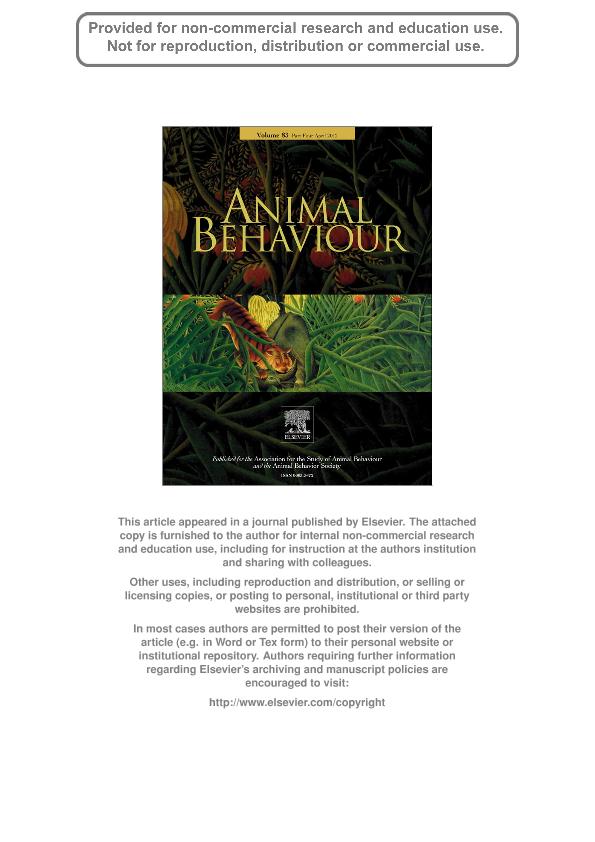Artículo
Learned olfactory cues affect pollen-foraging preferences in honeybees, Apis mellifera
Fecha de publicación:
02/2012
Editorial:
Elsevier
Revista:
Animal Behaviour
ISSN:
0003-3472
Idioma:
Inglés
Tipo de recurso:
Artículo publicado
Clasificación temática:
Resumen
Honeybees, Apis mellifera, show learned odour preferences for flowers that provide nectar as a reward. However, little is known about such behavioural plasticity when bees exploit pollen sources. Furthermore, the question about whether nectar and pollen foragers use the same learned strategy to improve foraging efficiency remains untested. Here, we demonstrate that honeybee foragers are able to learn odour cues associated with pollen as a reward. This was tested in free-flying bees in a dual-choice feeding device after the bees had gathered pollen from a scented feeder. Free-flying bees that associated odour with pollen successfully recalled these memories in olfactometer odour choice tests in a Y-maze, but they failed to show extension of the proboscis to learned odour cues when restrained (proboscis extension reflex, PER, assay). In addition, odour cues associated with pollen at the feeding site induced foraging reactivation when bees were blown into the hive. In PER assays, after fatty acids were applied to the bees’ antennae, pollen foragers were more responsive than nectar foragers. This, in turn, allowed pollen foragers in the PER assay to associate an odour cue with pollen in some trials. On the other hand, the unconditioned response (UR) and the odour-conditioned response (CR) to sucrose and amino acids were similar for both types of foragers. Pollen foragers also showed more URs to fresh pollen of different flower species and even performed better during conditioning with some pollen types as the reward than did nectar foragers. By studying biases in pollen-foraging responses after learning, we provide new insights to help comprehend and characterize the search for food between pollen and nonpollen honeybee foragers.
Palabras clave:
Apis Mellifera
,
Decision Making
,
Olfactory Learning
,
Pollen
Archivos asociados
Licencia
Identificadores
Colecciones
Articulos(IFIBYNE)
Articulos de INST.DE FISIOL., BIOL.MOLECULAR Y NEUROCIENCIAS
Articulos de INST.DE FISIOL., BIOL.MOLECULAR Y NEUROCIENCIAS
Citación
Arenas, Andres; Farina, Walter Marcelo; Learned olfactory cues affect pollen-foraging preferences in honeybees, Apis mellifera; Elsevier; Animal Behaviour; 83; 4; 2-2012; 1023-1033
Compartir
Altmétricas




